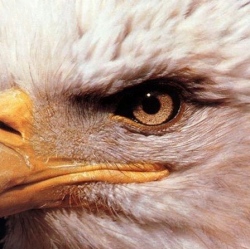
Americans like science. Overwhelming majorities say that science has had a positive effect on society and that science has made life easier for most people. Most also say that government investments in science, as well as engineering and technology, pay off in the long run. And scientists are very highly rated compared with members of other professions: Only members of the military and teachers are more likely to be viewed as contributing a lot to society’s well-being.
However, the public has a far less positive view of the global standing of U.S. science than do scientists themselves. Just 17% of the public thinks that U.S. scientific achievements rate as the best in the world.
A survey of more than 2,500 scientists, conducted in collaboration with the American Association for the Advancement of Science (AAAS), finds that nearly half (49%) rate U.S. scientific achievements as the best in the world. When asked about their own scientific specialty, about the same share of scientists (45%) rate U.S. scientific achievements the best in the world.
There are indications that the public also is somewhat less confident in America’s scientific prowess than it once was. Significantly fewer Americans volunteer scientific advances as one of the country’s most important achievements than did so a decade ago (27% today, 47% in May 1999). As an example, ten years ago, 18% cited space exploration and the moon landing as the country’s top achievement of the 20th century. Today 12% see it as the greatest achievement of the past 50 years.
While the public holds scientists in high regard, many scientists offer unfavorable, if not critical, assessments of the public’s knowledge and expectations. Fully 85% see the public’s lack of scientific knowledge as a major problem for science, and nearly half (49%) fault the public for having unrealistic expectations about the speed of scientific achievements.
A substantial percentage of scientists also say that the news media have done a poor job educating the public. About three-quarters (76%) say a major problem for science is that news reports fail to distinguish between findings that are well-founded and those that are not. And 48% say media oversimplification of scientific findings is a major problem. The scientists are particularly critical of television news coverage of science. Just 15% of scientists rate TV coverage as excellent or good, while 83% say it is only fair or poor. Newspaper coverage of science is rated somewhat better; still, barely a third (36%) of the scientists say it is excellent or good, while 63% rate it as only fair or poor.
While scientists are generally upbeat about the state of their profession, they do see several obstacles to conducting high-quality basic research. As might be expected, by far the biggest impediment is a lack of funding; more than eight-in-ten say this is a very serious (46%) or a serious (41%) impediment to research. A majority (56%) also says that visa and immigration problems for foreign scientists and students stand in the way of high-quality research. Far smaller percentages say that regulations on animal research (27%) or other factors are serious impediments to scientific research.
